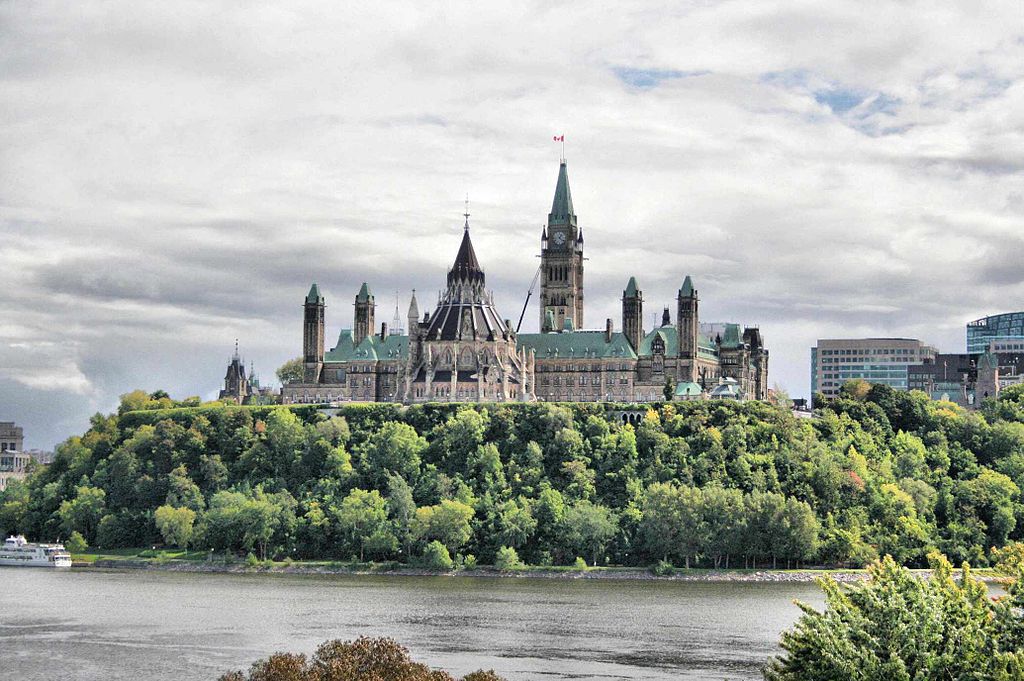The Canadian government has promised C$450 (US$340m) to the United Nations’ Green Climate Fund (GCF) for projects cutting emissions and adapting to climate change around the world.
Announcing the allocation at Canada’s embassy in Brussels, environment and climate minister Steven Guilbeault implied he would like to have given more but said the pledge was a “significant step forward” nonetheless.
The GCF was set up in 2010 to distribute money from wealthy countries to climate projects in low and middle-income countries. It has spent around US$12bn so far funding climate projects but has recently warned of cutbacks because of a lack of resources.
🔴#LIVE now from Brussels: Minister Guilbeault announces $450M to @theGCF, the world’s largest climate fund. Learn how this will boost global climate initiatives. https://t.co/a7i2y0XGrX
— Environment Canada (@environmentca) July 12, 2023
Guilbeault confirmed at the Brussels press conference that the money will be taken from C$5.3 billion (US$4bn) of climate finance promised at Cop26 in Glasgow and will be spread over four years from 2024 to 2027.
Not the finance minister
At the press conference, Guilbeault was asked if the C$5.3bn (US$4bn) of climate finance that this GCF allocation is part of was Canada’s fair share of the global finance commitment. Analysis by the Overseas Development Institute suggests it falls slightly short.
He replied: “Would I like Canada to put even more money on the table? I’m the environment and climate change minister, not the finance minister unfortunately. But I think we can always do better”.
While Guilbeault was a climate campaigner at organisations like Greenpeace for 30 years before joining the government, the finance minister, Chrystia Freedland, has been accused of ignoring the climate crisis.
But, Guilbeault said, it was a “significant step forward”. The pledge is 50% up from Canada’s last GCF pledge in 2019. But that is a low bar as the 2019 pledge was the same as the pledge the right-wing Canadian government of Stephen Harper made in 2014.
The pledge is part of the GCF’s replenishment round, where wealthy governments promise it money every four years. Canada is only the third major country to pledge this round, following a $2.2bn pledge from Germany and $0.2bn from Austria. Both Germany and Austria’s donations are more generous, when taking population into account.
Canada has previously given about half of its funding to the GCF in the form of loans. France is the only other country to have donated through loans, with most countries giving grants, which do not need to be paid back.
The announcement received a cautious welcome from Canadian campaigners. Pratishtha Singh from Climate Action Network Canada said: "As a wealthy and high-polluting country, Canada needs to show solidarity with the most vulnerable communities and ecosystems battling the climate crisis by putting money on the table."
She added: "Today’s announcement is an encouraging sign – but it must not stop here. Canada must increase climate finance to its fair share of the global effort and convince other wealthy countries to scale up their own contributions to the GCF ahead of the pledging conference in October."
But Catherine Abreu, the Ottawa-based founder of Destination Zero, told Climate Home: "While it's a good faith move for Canada to increase its GCF pledge by 50%, the amount of money Canada has put on the table falls short of the call on donor countries to double their investments - we can do more."

Green Climate Fund pledges by country (Photo credit: Joe Thwaites/NRDC)
Joe Thwaites, climate finance analyst at the US-based National Resources Defence Council, said the 50% increase "raises the bar for other countries that have yet to make a pledge" but that still "on both a per capita and percent of GDP basis, Canada's G7 peers Germany, France and the UK have contributed much more".
Abreu said that, as the announcement was on the same day as Canada co-hosted a ministerial climate meeting, it enabled Canda to encourage fellow donor countries "to step up and provide the finance that's necessary to unlock climate ambition in advance of Cop28".
US president Joe Biden said last April his government would provide $1 billion to the GCF - the US first contribution in six years. But that is not part of the new funding round and only goes to partially deliver on a pledge made almost a decade ago.
This article was updated on 13th July to include Catherine Abreu's comments
